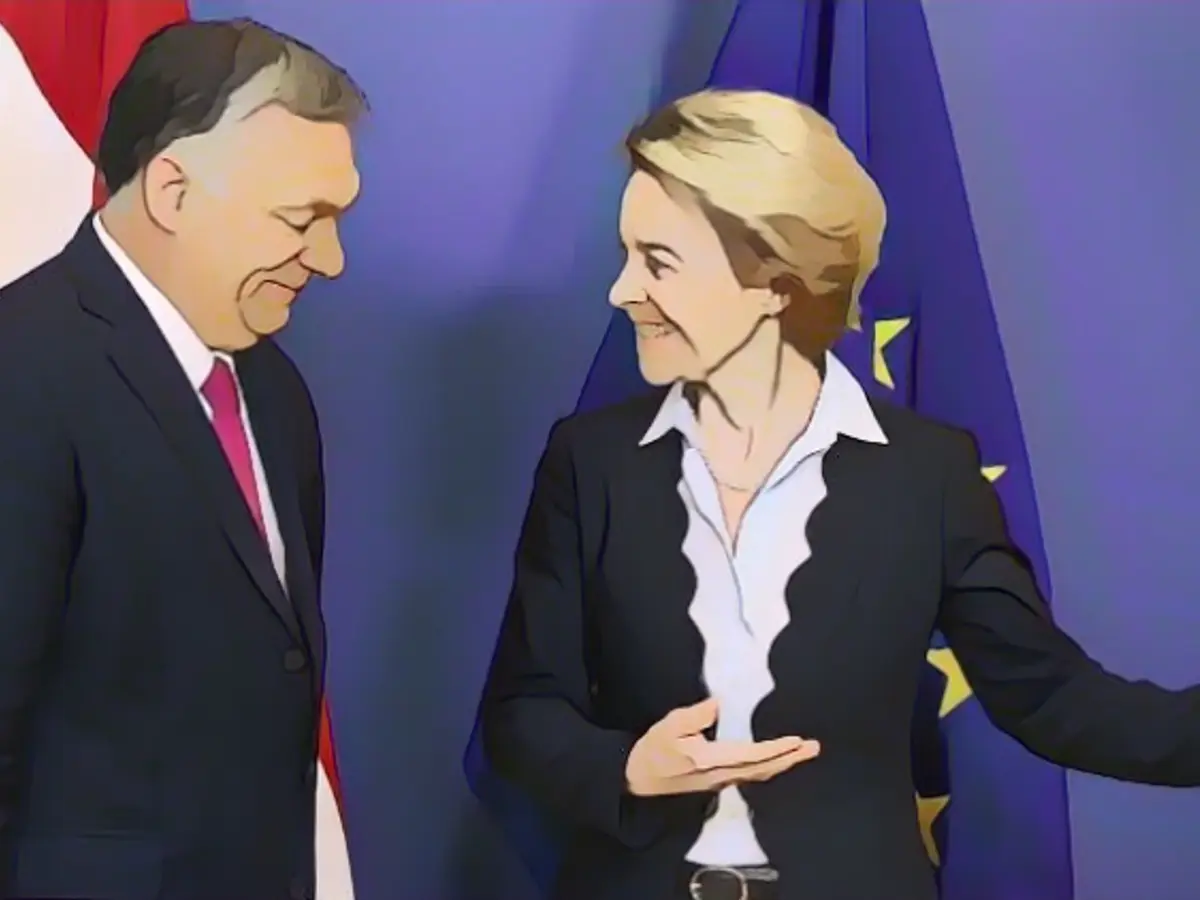EU Aid for Ukraine, Despite Hungarian Veto: Options on the Table
Heads of European Union (EU) states and governments are pushing for new aid for Ukraine at the summit, with the exception of Hungary's President Orban, who stands alone in opposition. Commission President von der Leyen and Chancellor Scholz remain hopeful that a resolution will be found, hinting at the possibility of proceeding without Hungary's approval.
In the quest for a unanimous agreement between the 27 member states, von der Leyen acknowledges the necessity of exploring alternative routes to bypass the impasse, should a consensus not be reached. This proactive approach signifies a willingness to find workarounds if necessary.
Viktor Orban, Hungary's Prime Minister, still holds his ground, opposing the release of the 50 billion euros in aid at the summit. Negotiations have stalled, with a special summit to be convened in January. Despite this, other member states are not deterred.
Way forward, according to Leo Varadkar, Ireland's Prime Minister, is for the 26 member states to make the funding available on a bilateral basis, outside of the multi-year budget. While this is not his preferred solution, it shows a willingness to explore alternatives to maintain the flow of support to Ukraine.
Optimism in the Face of Challenge
Despite Orban's stance, Council President Michel and Chancellor Scholz remain hopeful, stating, "We are extremely confident and optimistic that we will be able to fulfill our promises to support Ukraine with financial resources." This expression of optimism indicates a determination to overcome the obstacles and secure funding for Ukraine.
However, should a unanimous agreement not be reached, Scholz emphasizes, "We have other options to help Ukraine." This statement underscores the EU's commitment to finding alternative means of supporting Ukraine financially, even in the face of opposition.
Potential Alternatives
- Belgian Law: Invoking a 1944 Belgian law could potentially prevent the release of frozen Russian assets held under Euroclear, which could be utilized to fund Ukraine without requisite Hungarian approval.
- Sanctions as Trade Measures: Reclassifying the sanctions as trade policy measures would require qualified majority vote rather than unanimous approval, bypassing Hungary's veto power.
- Military Aid: Continued military aid to Ukraine via other means is likely, given the existing support and draft documentation indicating a commitment to aid for as long as necessary.
- Supplementary Funding: The EU is on the brink of approving an additional 5 billion euros in aid for Ukraine, regardless of Hungary's stance, showing a readiness to secure supplementary funding if it becomes necessary.
Sources
[1] European Commission, (2022, July 22), EU-Ukraine association agreement,
[2] Eurostat, (2021, October 15), External financing of general government
[3] European Parliament, (2022, January 10), Hungary: Rule of law,








